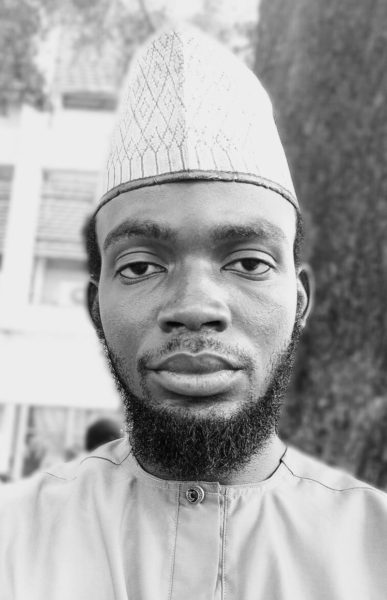National Issues
This Protest: The Coming Chaos And Call For Order -By Musa Kalim Gambo
The Nigerian authorities are always concerned that protests of whatever medium and means if not checked could drag the country down the path of East Africa and Middle East of 2011. And it is a genuine and justified concern, for no one would derive any pleasure when faced with chaos and anarchy.

The problem with protests in this part of the world is that it is difficult to set a definite limit akin to what the analytical chemist would call the titrimetric endpoint, the point at which the desired end might have been achieved. It is difficult to stop and assess the potency of reacting species, whether the methodology or technique employed has been effective in leading to the desired end.
While on the other hand, the Nigerian authorities are always concerned that protests of whatever medium and means if not checked could drag the country down the path of East Africa and Middle East of 2011. And it is a genuine and justified concern, for no one would derive any pleasure when faced with chaos and anarchy. An American Middle East expert, Shelly Culbertson remarks;
“The inspirational movements of the Arab Spring captured global imagination for what might be. Arab Spring movements demanded a better way of life and new models for societies that were not realizing their potential. But the aftermath has ranged from tentatively encouraging to halting processes for change to devastating civil wars that have resulted in challenges to the very borders of the Middle East and mass refugee crises.”
Nigeria cannot stand the heat of these regions of 2011. However, to the ordinary protester, or his supporter, this heat is an important spectacle to behold. It is tough times like this that expose the weakness of governance structures in developing countries. However, when a poor man takes up arms against a fellow poor man who is barely fighting to survive against hunger and preventable diseases, it is the duty of the state to intervene with both brutal force and subtle arbitration.
The fear of the man in power is not that his people may suffer from his deliberate silence; it is that the rest of his peers may see him to be weak. Achebe captures this dilemma of powerful men in his highly celebrated novel Things Fall Apart through Okonkwo. Okonkwo’s power in this text is driven by fear, the fear that he might be seen as a weakling by the rest of his clansmen. That is why when he was confronted with the tough dilemma of choice between executing Ikemefuna, a child entrusted under his care who calls him ‘father’, and the defense of his pride and place of prominence among his clansmen, he chose the latter.
Our leaders in Africa do not care much about the condition of people in remote rural communities, because these communities do not have access to the rest of the world, and the rest of the world does not care to take a look at them. These are communities where access to internet connectivity, electricity, portable water, education and healthcare services are a heavenly luxury. To these communities, governance and political leadership begins and ends on queues at polling units after every four years.
The only way to get a listening ear is to walk on the streets and make some loud noise and threaten their sense of pride by showing the world how they have reneged on their promises and obligations; whether on the real physical street or cyber-street. Either way, the noise is popularized, the attention of the rest of the world is attracted, and pressure is mounted on the authorities concerned to take definite actions. Imagine a big bully snatching a pack of sweet candy from a little kid. This bully would not want the kid to cry or raise alarm to attract attention from outsiders. He wouldn’t want the kid to cry out for help. That is the picture of the African political class against his poor and neglected people. He wouldn’t like them to take to the streets and cry out to the rest of the world about their pathetic condition. So the African political class would always use the existing structures and systems of power to dismiss any protester as an enemy of the state and label him with treason and felony. This is because a protest, non-violent protest, if well-coordinated and executed has the capacity to change the heart or even the entire body of a government.
The political upheaval that took place in East Africa and parts of the Middle East in 2011 demonstrates that if people are united by a common frustration and anger it would be very easy to mobilize them around a common goal of political change, and any kind of social change. In fact these people could become more powerful and threatening to authorities than armored tanks.
However, today only peaceful and nonviolent protest, though slow, has the capacity to succeed in an African terrain. Violence or riot, indeed any action which is contrary to the existing legal framework and accepted values of a decent society in the course of any form of protest will defeat the protest itself like self-fired gunshot at the foot.
Just recently, a group of young women in Northern Nigeria attempted to domesticate an American online protest against sexual violence. They called it the #MeToo movement. It was a movement which encouraged women who have experienced sexual violence and abuse to come out and seek for redress. While it was a valid protest against a scourge that was ravaging most of Nigeria, the organizers of the movement ended up against a solid brick wall on the Northern Nigerian cyberspace. They attempted to bring the entire American #MeToo movement to the North without regard for the cultural and religious values of the region. Some of these organizers got entangled in the web of the American LGBTQ discourse here in the North and that stripped the movement of its credibility because this was a discourse that was an alien taboo to the Northern space. At the same time some of the leading members of the movement became so emotional to the point that they were carrying placards with messages that were insulting to the religious and cultural values of the North. In these instances the protesters lost sight of the essence of their protest and the social background of the place of their protest.
In the past weeks there has been a new turbulent wave of protests across the nation by young people on the streets and social media against blatant violation of human rights by a certain division of the Nigerian police force. This protest has mobilised youths for a common cause, to bring an end to police brutality. In the wake of the protest, the image of a young Muslim woman, with graphic similarity to the American Statue of Liberty has become a metaphor and symbol of this new protest. Aisha Yesufu’s iconic image, the image of a fearless Muslim woman in Hijab driving protest, will continue to inspire graphic artists, sculptors, art enthusiasts, and art analysts for years to come. Aisha Yesufu’s modest Islamic dressing identified her as odd among the protesters, but it presented the image of a woman who did not leave at home her religious and cultural values and identity to join a street protest.
The fact that the Federal government reacted to the protests by dissolving the arm of the Nigerian police in question proves that peaceful and nonviolent protest, online and offline could remind the government of the need for action, especially at a time that the lives and livelihoods of poor people in local communities are threatened.
Certainly there will always be the need to call the attention of government and authorities to areas that the rest of the public feels need greater attention and demand for more urgent action, but the public or any protest organizer must ensure that such protest reflects and complies with the existing cultural and ethical values of his society and legal provisions, otherwise there would always be a giant brick wall waiting for him.
–Musa Kalim Gambo writes from Zaria and can be reached on kalimatics@gmail.com


















